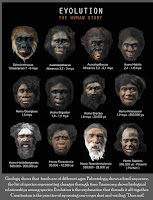On a tectonic level,
economic development is all about urbanization. When peasants massively migrate
to the cities, and women join the urban workforce, their exhausting work miraculously
acquires the Midas Touch: everything they touch turns into gold, although
very little of it ends in their own pockets. Before, in the fields, and
homes, it had been just as hard, and they had delivered products and services
that were just as useful, however, they consumed them mostly themselves or
their families: scarcely any of them was sold in the marketplace.
Meanwhile,
when they join the urban workforce, most of their work is input into goods and
services that are sold in the marketplace. Peasants and city dwellers have
bread and milk for breakfast, but only the latter buy those in the marketplace.
Gross Domestic Product (GDP), the core measure of modern economics, only
accounts for the value added by human work input into goods and services that
are sold in the marketplace. The rest of human work -that is to say, most of it
in peasant, and male provider, societies-, does not count for this purpose.
This is not the result of a mistaken calculation: human work assumes the form
of value only when the goods and services produced are sold in the marketplace.

This is the great finding of the classic liberal economists, which according to
Marx, changed the course of human thought. Based on this knowledge, the latter
author described this great peasant migration as the indispensable basis for
the emergence of modern economies: He called it “primitive accumulation of
capital”, because it provides the armies of men and women, liberated from their
oppresive bonds to lords, land and home, free to be hired by capitalist
employers; and also forced to do so once and again, to earn a living, which
most of them cannot do otherwise because in the cities they lack land or other
means of production and livelihood.
It was only after the fall of the Berlin
Wall in 1989, that the world has become aware that this is an ongoing process,
as formidable capitalist competitors emerged from the other side, while
communism remained a phantom. Goldman-Sachs’ Jim O’Neill estimated in 2003 thatthe BRIC countries, until then considered condemmed to eternal backwardness,
would swarm into the G6 by mid-century; since then, bankers have been greatly exaggerating
the speed of this process to entice naive investors into the mother of all
speculative bubbles. And there are much more to come, as the UN estimated that
in 2008 exactly half of humankind were still peasants. Markus Kopplers, CEO of
mining giant BHP Billiton, in a 2008 interview to The Wall Street Journal,
described the same process saying: GDP is growing very fast as new people are
arriving to industrial age, as a consequence of massive urbanization.

















